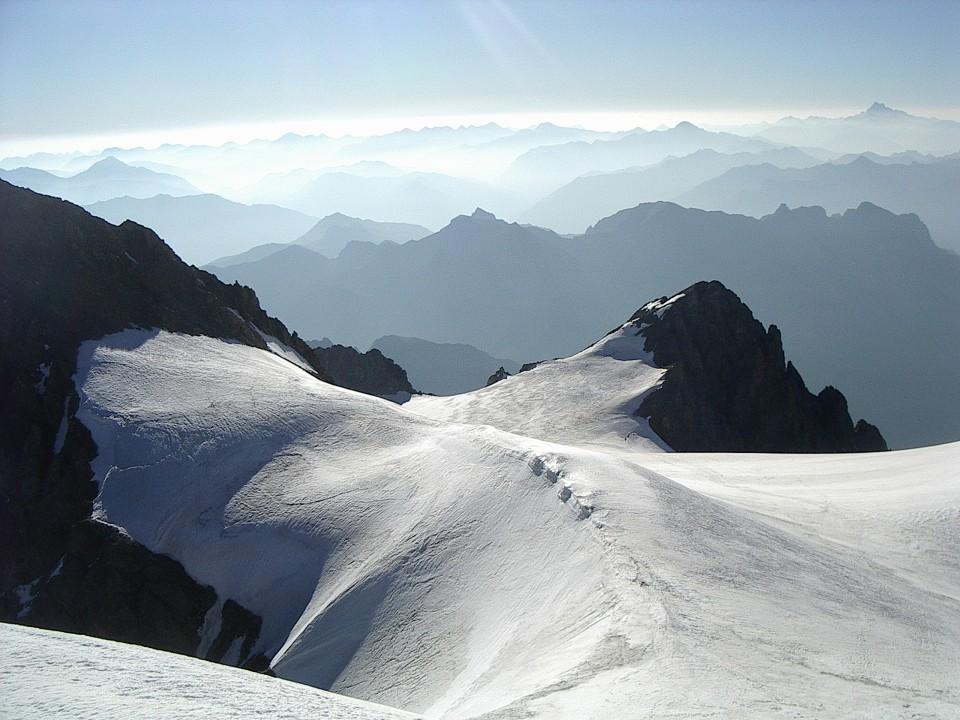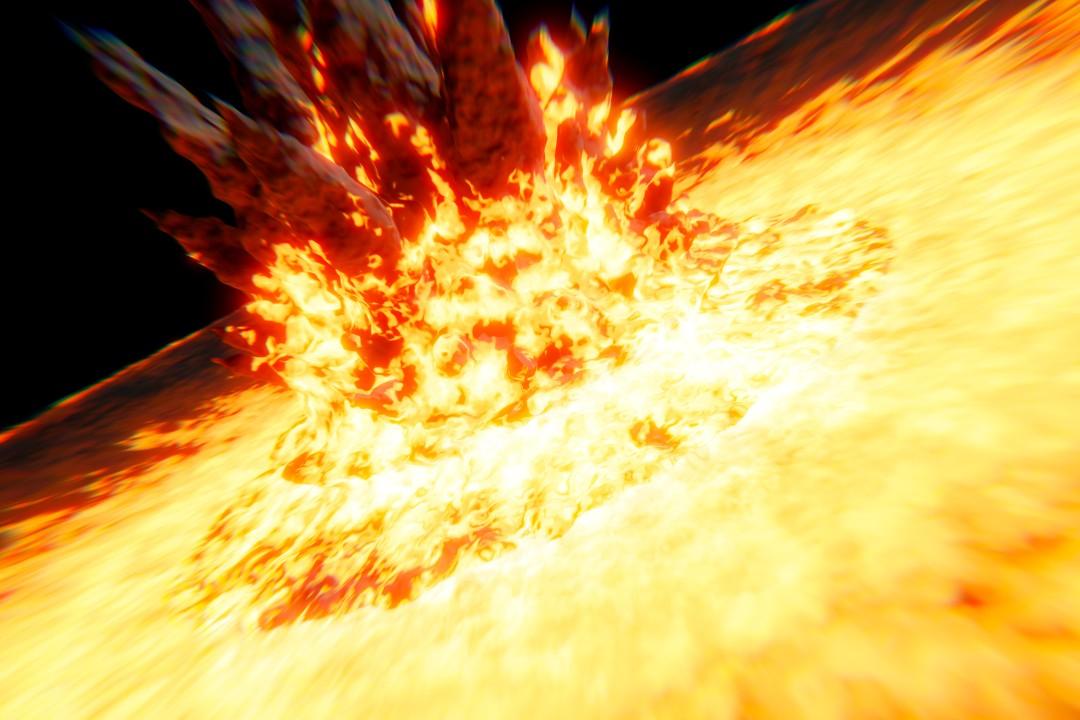Wishing you and your families a healthy, happy, and prosperous 2024. Filled with adventure, challenge, volatility, introspection too. Dusted off an anecdote from 2011 that I reflect on at the dawn of each year, in preparation for what’s to come (see below). All the very best, E
Week-in-Review: Mon: Christmas Day, Iran says Israeli airstrike in Syria killed top Rev Guard commander (Moussavi), PBOC lost power to a revamped financial regulator as Beijing moves to reset its growth model, S&P closed; Tue: thin liquidity amid Christmas holiday, Ueda drops more hint of impending higher BOJ rates, US launched airstrikes on 3 facilities in Iraq targeting Iranian backed terrorist groups, Japan Jobless rate 2.5% as exp, US Dallas Fed mfg activity -9.3 (-17.0e), S&P +0.4%; Wed: Ueda implies that BOJ can shift policy before all SME wage data is in – opens door for March NIRP exit, Apple Watch ban put on hold by courts, NYT sues MSFT and OpenAI on copyright infringement used to train chatbots and other AI services, shipping giant Hapag-Lloyd will continue to keep vessels away from Red Sea despite the launch of US led taskforce to protect the key shipping route, Japan housing starts -8.5% (-4.2%e), US Richmond Fed mfg index -11 (-3e), Russia IP 4.3% (4.2%e) / unemp 2.9% as exp, S&P +0.1%; Thu: PBOC vows to step up existing monetary policy easing, ships avoiding the Red Sea doubles from a week prior, ECB’s Holzmann warns that cuts in 2024 aren’t guaranteed, India blocks some crypto exchanges like Binance, S. Korea IP 5.3% (3.2%e), Japan ret sales 5.3% (5%e) / IP -1.4% (-2.1%e), Brazil IPCA infl 4.72% (4.56%e), Mexico unemp 2.71% (2.65%e), US Wholesale inv -0.2% MoM (as exp), US init claims 218k (210k exp), S&P flat; Fri: Last day of year = quiet markets, Maine’s secretary of state rules Trump ineligible for state’s GOP primary following Colorado’s similar previous ruling, Russia launches largest missile barrage since beginning of the war, China names new defense minister – Dong Jun, S. Korea CPI 3.2% (3.3%e) / Core CPI 2.8% (2.9%e), UK house prices -1.8% (-1.3%e), Brazil unemp 7.5% as exp, US Chicago PMI 46.9 (50e), S&P -0.3%
Weekly Close: S&P 500 +0.3% and VIX -0.58 at +12.45. Nikkei +0.9%, Shanghai +2.1%, Euro Stoxx +0.3%, Bovespa +1.1%, MSCI World +0.5%, and MSCI Emerging +3.2%. USD rose +2.2% vs Bitcoin, +1.0% vs Turkey, +0.7% vs Sweden, and +0.1% vs India. USD fell -2.3% vs Russia, -1.1% vs Ethereum, -1.1% vs Chile, -1.0% vs Yen, -0.6% vs Indonesia, -0.5% vs China, -0.4% vs South Africa, -0.2% vs Sterling, -0.2% vs Euro, -0.2% vs Canada, -0.2% vs Australia, -0.1% vs Brazil, and flat vs Mexico. Gold +0.1%, Silver -1.9%, Oil -2.6%, Copper -0.4%, Iron Ore +0.6%, Corn -0.4%. 10yr Inflation Breakevens (EU -2bps at 1.95%, US -3bps at 2.17%, JP +3bps at 1.18%, and UK +1bp at 3.48%). 2yr Notes -7bps at 4.25% and 10yr Notes -2bps at 3.88%.
Dec Monthly Close: S&P 500 +4.4% and VIX -0.47 at +12.45. Nikkei -0.1%, Shanghai -1.8%, Euro Stoxx +3.8%, Bovespa +5.4%, MSCI World +4.8%, and MSCI Emerging +3.7%. USD rose +2.3% vs Turkey, +1.4% vs Russia, and +1.1% vs Chile. USD fell -13.6% vs Ethereum, -11.8% vs Bitcoin, -4.8% vs Yen, -4.1% vs Sweden, -3.0% vs Australia, -2.6% vs South Africa, -2.4% vs Mexico, -2.3% vs Canada, -1.4% vs Euro, -1.3% vs Brazil, -0.8% vs Sterling, -0.7% vs Indonesia, -0.5% vs China, and -0.2% vs India. Gold +0.7%, Silver -6.1%, Oil -5.8%, Copper +1.0%, Iron Ore +2.6%, Corn -2.4%. 10yr Inflation Breakevens (EU -19bps at 1.95%, US -8bps at 2.17%, JP -12bps at 1.18%, and UK -12bps at 3.48%). 2yr Notes -43bps at 4.25% and 10yr Notes -45bps at 3.88%.
Q4 Quarterly Close: S&P 500 +11.2% and VIX -5.07 at +12.45. Nikkei +5.0%, Shanghai -4.4%, Euro Stoxx +6.4%, Bovespa +15.1%, MSCI World +11.1%, and MSCI Emerging +7.4%. USD rose +7.7% vs Turkey, and +0.2% vs India. USD fell -37.0% vs Bitcoin, -29.0% vs Ethereum, -7.7% vs Sweden, -7.6% vs Russia, -5.6% vs Yen, -5.5% vs Australia, -4.2% vs Euro, -4.2% vs Sterling, -3.5% vs Brazil, -3.0% vs South Africa, -2.7% vs China, -2.6% vs Mexico, -2.5% vs Canada, -1.4% vs Chile, and -0.4% vs Indonesia. Gold +9.9%, Silver +5.7%, Oil -16.0%, Copper +3.3%, Iron Ore +12.1%, Corn -4.2%. 10yr Inflation Breakevens (EU -38bps at 1.95%, US -17bps at 2.17%, JP -5bps at 1.18%, and UK -37bps at 3.48%). 2yr Notes -80bps at 4.25% and 10yr Notes -69bps at 3.88%.
2023 Yearly Close: S&P 500 +24.2% and VIX -9.22 at +12.45. Nikkei +28.2%, Shanghai -3.7%, Euro Stoxx +12.7%, Bovespa +22.3%, MSCI World +21.8%, and MSCI Emerging +7.0%. USD rose +57.8% vs Turkey, +26.1% vs Russia, +7.8% vs South Africa, +7.6% vs Yen, +3.3% vs Chile, +2.9% vs China, +0.6% vs India, and flat vs Australia. USD fell -61.3% vs Bitcoin, -49.3% vs Ethereum, -13.0% vs Mexico, -8.0% vs Brazil, -5.1% vs Sterling, -3.4% vs Sweden, -3.0% vs Euro, -2.3% vs Canada, and -1.1% vs Indonesia. Gold +7.9%, Silver -4.4%, Oil -6.1%, Copper +2.3%, Iron Ore +21.7%, Corn -23.7%. 10yr Inflation Breakevens (EU -32bps at 1.95%, US -12bps at 2.17%, JP +33bps at 1.18%, and UK -14bps at 3.48%). 2yr Notes -18bps at 4.25% and 10yr Notes unch at 3.88%.
Year-to-Date Equities (high to low): Poland +51.9% priced in US dollars (+36.5% priced in zloty), Hungary +49% priced in US dollars (+38.4% priced in forint), Greece +43.7% priced in dollars (+39.1% in euros), NASDAQ +43.4% in dollars, Mexico +36.3% in dollars (+18.4% in pesos), Brazil +33.1% (+22.3%), Italy +32.2% (+28%), Venezuela +30.3% (+176.1%), Denmark +28.2% (+24.4%), Taiwan +27.5% (+26.8%), Ireland +27.3% (+23.2%), Spain +26.8% (+22.8%), Germany +24.3% (+20.3%), S&P 500 +24.2% in dollars, Euro Stoxx 50 +23.1% (+19.2%), MSCI World +21.8% in dollars, Sweden +21.7% (+17.3%), France +20.4% (+16.5%), Japan +19.3% (+28.2%), India +19.3% (+20%), Czech Republic +18.8% (+17.7%), Netherlands +18% (+14.2%), Russia +17.7% (+43.9%), Colombia +17% (-7.1%), Korea +16.4% (+18.7%), Russell +15.1% in dollars, Saudi Arabia +14.2% (+13.9%), Switzerland +14% (+3.8%), Austria +13.5% (+9.9%), Chile +13.4% (+17.8%), Canada +10.8% (+8.1%), Portugal +10.6% (+7.1%), UK +9.5% (+3.8%), Australia +8.1% (+7.8%), Indonesia +7% (+6.2%), Norway +6.3% (+9.5%), Belgium +3.5% (+0.2%), New Zealand +2.4% (+2.6%), Singapore +1.2% (-0.3%), Argentina +0.8% (+360.1%), Israel +0.3% (+3.4%), Philippines -1.2% (-1.8%), South Africa -1.8% (+5.3%), Finland -3.5% (-6.6%), UAE -6.2% (-6.2%), China -6.4% (-3.7%), Malaysia -6.7% (-2.7%), HK -13.9% (-13.8%), Thailand -14% (-15.2%), Turkey -14.1% (+35.6%).
Anecdote (Jan 2011): Pretty much everything I learned about climbing mountains, I learned from Vincent Ravanel. He’s 7th generation high altitude mountain guide from Argentiere, France. From father to son, the Ravanel’s passed a simple mantra: “The Mountain never ends.” And like most things profound, it touches on something universal and fundamental. Because climbing mountains, physical and metaphorical, is what Man does, and has always done, and will always do. Vincent would calmly whisper that mantra high on the rock and ice when we faced a challenge, a fork, a decision. It served to humble us both, remind us to pace ourselves, and to only press for the summit if conditions and timing were optimal. And it also served to inspire, to capture in a sentence our ambition to tackle something so large and enduring. You see, to bag a tough peak and return intact, of course you need skill/strength/tenacity, but you also need the right temperature/weather/visibility and a measure of good luck. Combine all those well, find the opening, push like hell, and bang – success. But fight the elements, force it, press your luck, and, well, you know the result. So, I take a deep breath, and look up, a new quarter looms and above that, a new year, a new decade, a new century, even a new millennium. And on these first steps of this ambitious climb, I remind myself of the importance of patience and humility, optimal conditions and timing, and a little good luck. But mostly, I tell myself to listen carefully, at those tough and lonely points that surely lay ahead, for the Ravanel whisper, “The Mountain never ends.”
Good luck out there,
Eric Peters
Chief Investment Officer
One River Asset Management
Disclaimer: All characters and events contained herein are entirely fictional. Even those things that appear based on real people and actual events are products of the author’s imagination. Any similarity is merely coincidental. The numbers are unreliable. The statistics too. Consequently, this message does not contain any investment recommendation, advice, or solicitation of any sort for any product, fund or service. The views expressed are strictly those of the author, even if often times they are not actually views held by the author, or directly contradict those views genuinely held by the author. And the views may certainly differ from those of any firm or person that the author may advise, converse with, or otherwise be associated with. Lastly, any inappropriate language, innuendo or dark humor contained herein is not specifically intended to offend the reader. And besides, nothing could possibly be more offensive than the real-life actions of the inept policy makers, corrupt elected leaders and short, paranoid dictators who infest our little planet. Yet we suffer their indignities every day. Oh yeah, past performance is not indicative of future returns.





